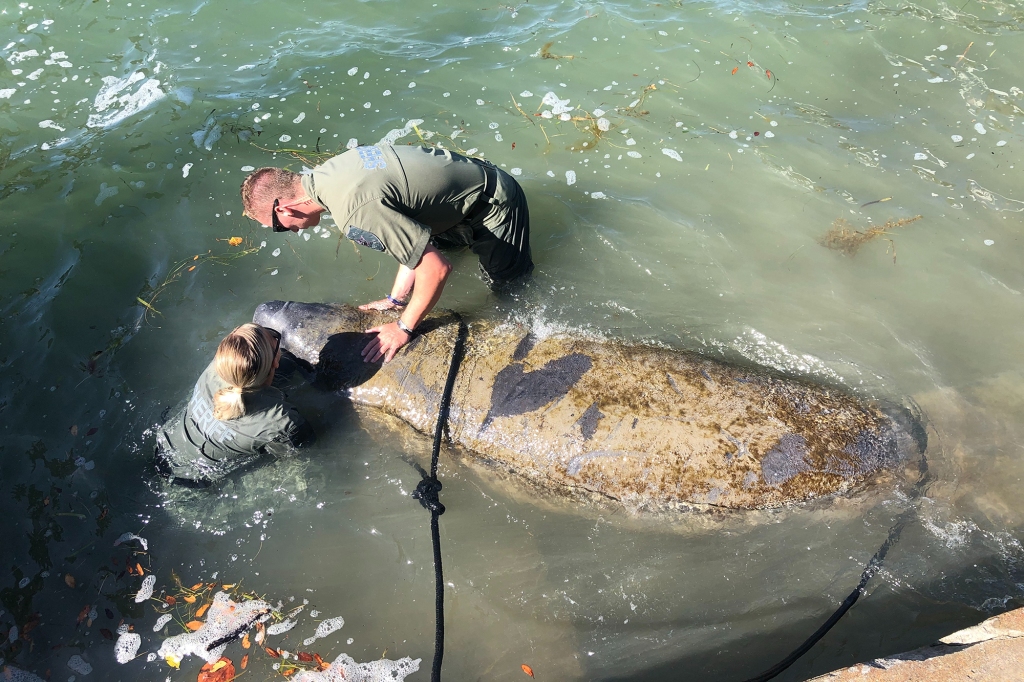Florida deputies hold ‘exhausted’ manatee’s head above water for 2 hours, saving its life
Oh, the hu-manatee.
Two Florida deputies held a distressed manatee’s head above water for two hours last month after finding the sea cow too “exhausted” to prevent itself from drowning during a red tide.
The massive mammal was desperately trying to beach itself on the rocks of the Shell Key Preserve — located 11 miles out from St. Petersburg — so it wouldn’t drown but ultimately gave up and floated at the surface with labored breaths, Pinellas County Sheriff’s Office said Tuesday.
That’s when officers from the department’s Marine and Environmental Lands Unit dove into action — literally and figuratively.
“This manatee is going to die right in front of us and I’m not letting that happen!” Deputy Jill Constant recalls saying. “We docked the boat, I took off my equipment, and got in.”
Constant and another unidentified officer took turns holding the manatee’s head above the surface for two hours as they waited for help to arrive.
At some point during the long two hours, the manatee regained some of its strength and began thrashing its 2,000-pound body in the water in an attempt to escape the deputies’ embraces.
“I thought I was going to drown – a martyr for the cause,” Constant said.
Florida Fish and Wildlife Commission biologists who responded to the animal rescue believe that the marine mammal will make a full recovery thanks to the deputies’ quick thinking.
FWC believes the sea cow’s distress and exhaustion were likely caused by the effects of toxins produced by red tide, a common term used for a harmful algal bloom.

The manatee could also have been suffering from starvation, a reality that becomes more frequent during red tide events.
Florida’s waterways have also seen a dramatic drop in the presence of seagrass, a vital food source for the gentle giants, thanks to habitat destruction,
State law prohibits animal lovers from touching and feeding the manatees, or doing anything that could affect the creatures, which have seen populations decreasing in recent years.
“Most people out here do not have ill intent. They don’t want to hurt a manatee. People just get enamored of how sweet they are, how social they are, and they’ll come right up to you. But it’s that forbidden fruit. You can’t do it,” Constant said.
At least 25% of all manatee deaths in Florida over the last 10 years can be attributed to boat strikes, FWC data shows.
Though West Indian manatees are not considered endangered, only 13,000 exist in the world.
Read the full article Here


